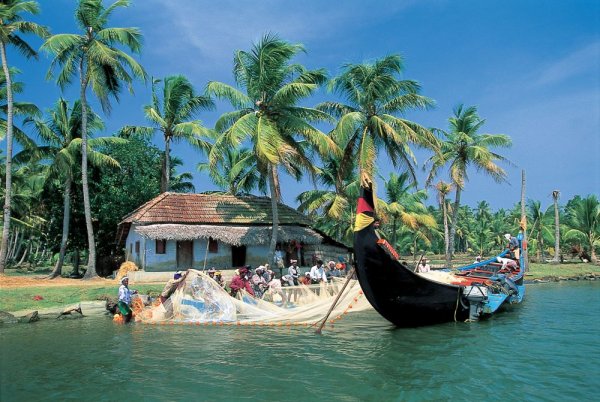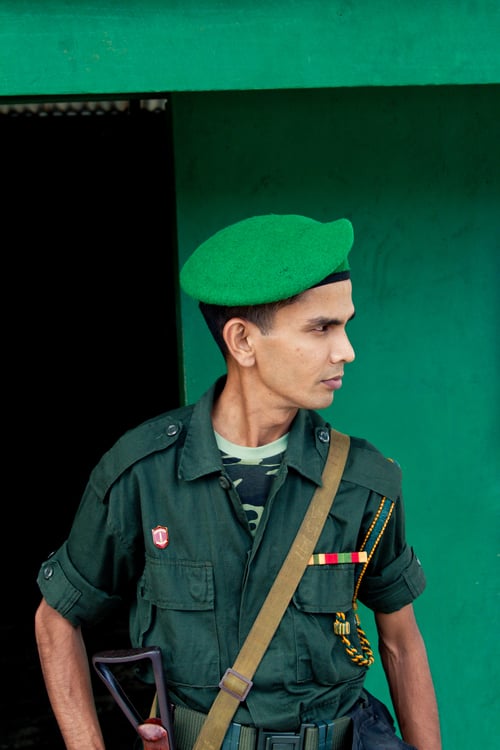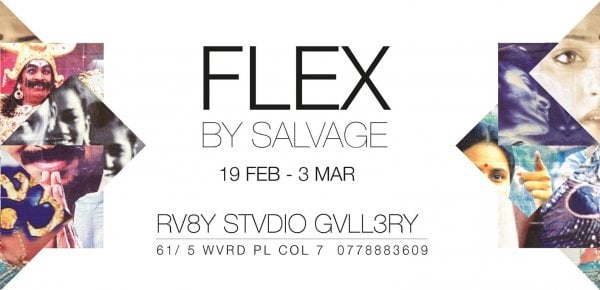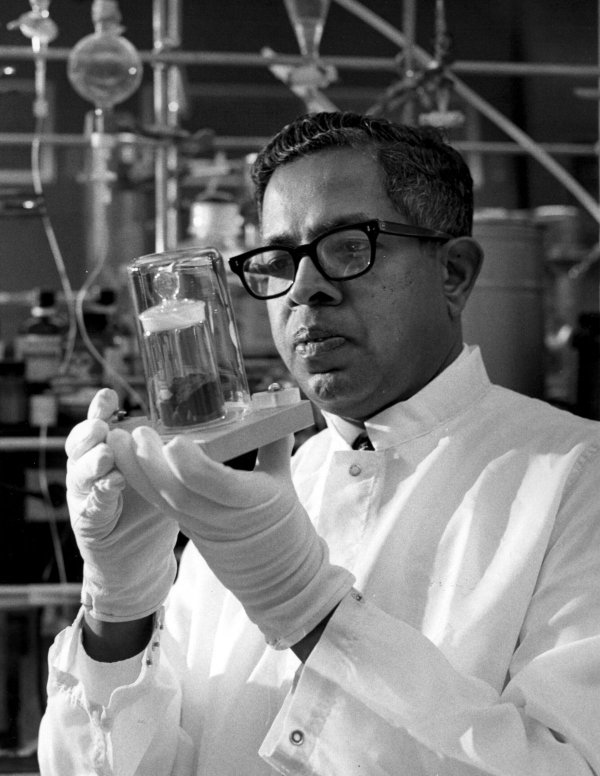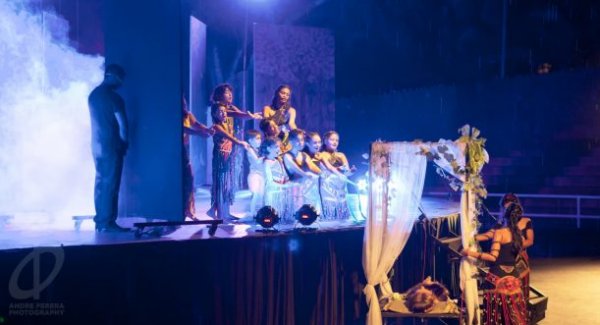If you were in the vicinity of Royal College on an August evening, you may have heard an orchestral melody wafting from the Navaranghala area. The musical notes were the work of the Gustav Mahler Society of Colombo, practising late into the night for their August 28 debut. Colombo’s newest orchestra of Western classical music is different from its peers when it comes to its aims.
What is an orchestra?
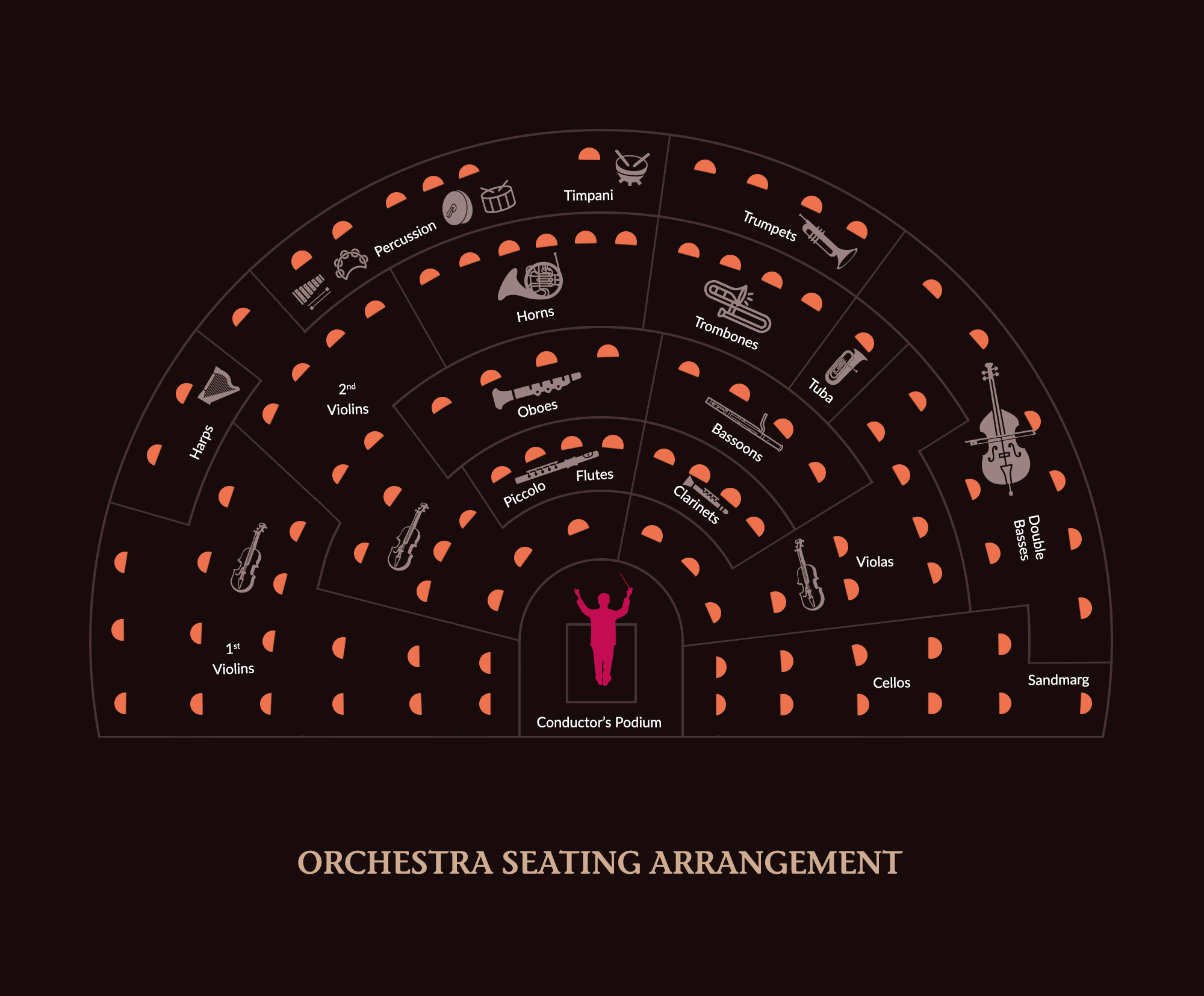
‘Orchestra’ is a term that goes all the way back to ancient Greece. It’s derived from the Greek word ὀρχήστρα (orchestra), which was the name for the area in front of the stage in ancient Greek theatre, which was reserved for the Greek chorus. Today, it has come to mean a large ensemble of musicians playing instruments from many different families.
Usually, orchestras include string instruments like violins, violas, cello and double bass; brass instruments like trumpets, horns, bugles and tubas; woodwind instruments like oboes, flutes and clarinets, and percussion instruments like drums, cymbals and tambourines. They are all grouped into sections and guided through the music by a conductor, who sets the tempo, making sure sections play at the right time and in the right way.
Smaller ‘chamber orchestras’ have about 50 musicians and play music in smaller spaces, like halls or chambers. The music they play, written by composers like Haydn, Mozart, and Vivaldi, is also intended to be played in such spaces. Larger orchestras that can have over a hundred musicians are called ‘symphony orchestras’. Composers like Beethoven, Brahms and Wagner wrote symphonies—massive pieces of music with many different instruments—that needed orchestras to perform them.
For a small island, Sri Lanka actually has a fair number of orchestras, including the Symphony Orchestra of Sri Lanka, the Chamber Music Society of Colombo, the National Youth Orchestra, and the Junior Symphony Orchestra, to name a few. Resembling a symphony orchestra with over 80 musicians, the Gustav Mahler Society is the latest to join the fray.
“All the other orchestras in Colombo, to my knowledge, are amateur orchestras,” said Srimal Weerasinghe, director of the Gustav Mahler Society. “I think we are the first group in Sri Lanka aiming towards a professional orchestra in a specific field in Western classical music. At the moment we don’t have one. So we want to develop step by step. We want to look at the educational aspect of the players, [developing] them, so we can create a professional orchestra.”
Who is Gustav Mahler?
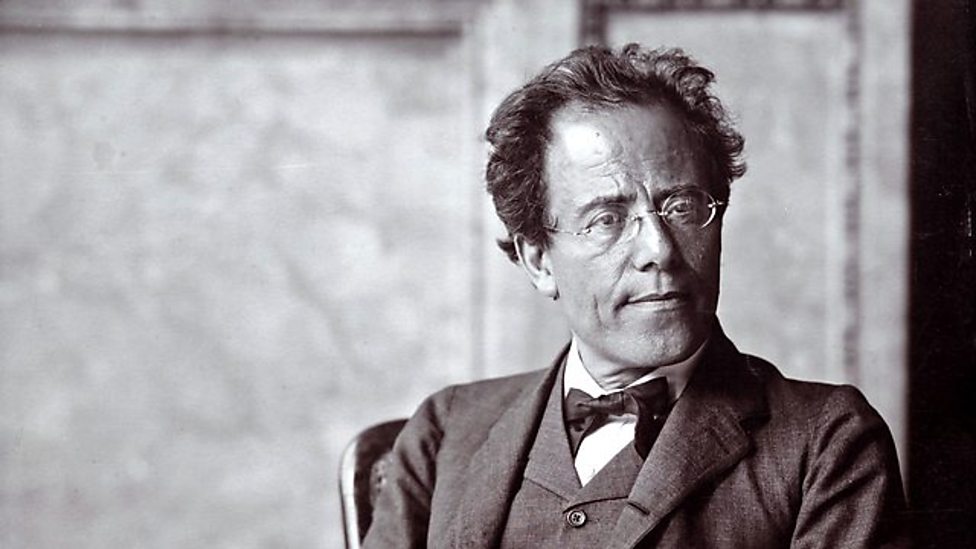
Gustav Mahler is relatively unheard of among familiar names such as Beethoven and Mozart. But among Western classical music aficionados, Mahler is a well-known, and sometimes divisive, figure.
Mahler was an Austro-Czech composer and conductor of the late Romantic period, in the early 1900s. Famed modern American composer Leonard Bernstein called him “one of the greatest conductors that ever lived.” However, his livelihood hobbled him from pursuing a career in music. As his only source of income was his work as part of an orchestra, Mahler was forced to be only a part-time composer. His work has been recognised as a bridge between the ‘Romantic period’ of composition, featuring music from composers like Beethoven, Chopin and Mendelssohn—who created music that was explicitly expressive and programmatic—and the ‘Modernism’ of the 20th Century, when music became more innovative and diverse. Mahler’s music shows features from both eras. This is also something that is used by detractors to denounce him, as some feel Mahler’s own music sounds too much like that of all the composers he conducted for.
Mahler’s small body of work covers a wide gamut of emotions. While his compositions displayed characteristics of chamber music, they were written for large orchestras with parts to be sung by operatic soloists as well. Mahler comes from the Austro-German tradition, but his work carries influences from many places. Leonard Bernstein said, “The Western side of him naturally drew him to Western musical styles, so that his music shows the influence of Mozart, Schubert, and Wagner – all the great German and Austrian composers. But his Eastern side drew him to other musical ideas, like gypsy, and Slavic… and even as far east as Chinese musical ideas. He loved Chinese poetry, Chinese philosophy, and the sounds of Chinese music. And his own music shows it.”
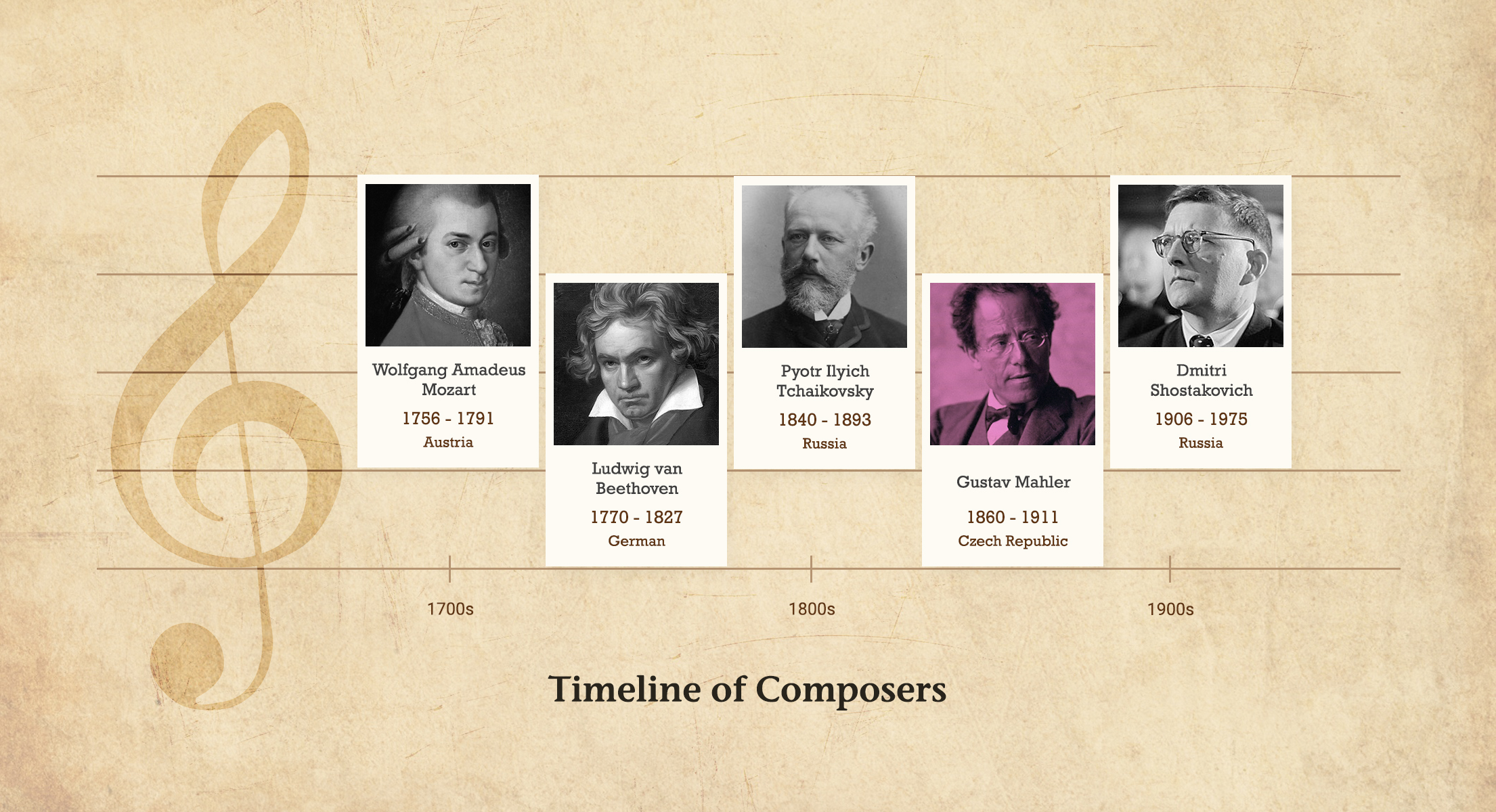
Mahler’s music evokes feelings that are extreme and exaggerated. It is also replete with the sounds of nature, such as birds singing and forest sounds. These were all part of Mahler’s idea of an innocent, childlike beauty.
“Amazing music! Amazing music. Very difficult,” said Rachel Halliday, soloist for the Gustav Mahler Society of Colombo, expressing her thoughts about the composer’s music. “That’s why I think it hasn’t been attempted here. I would say the interpretation requires a lot of work. I don’t know if we’ve achieved it all the way, but we’re trying.”
According to Weerasinghe, choosing Mahler’s work presented an artistic challenge to the musicians. “Gustav Mahler’s music is like a professional standard music in a foreign professional orchestra. It’s difficult and emotionally deep. This music had been overlooked in the concert programme for many years in Sri Lanka. We want to challenge the musicians to push their technical boundaries from what they have at the moment to perform this kind of music. They get the interest [from the fact] that there’s room to improve and there’s so much more to learn.”
The Gustav Mahler Society of Colombo
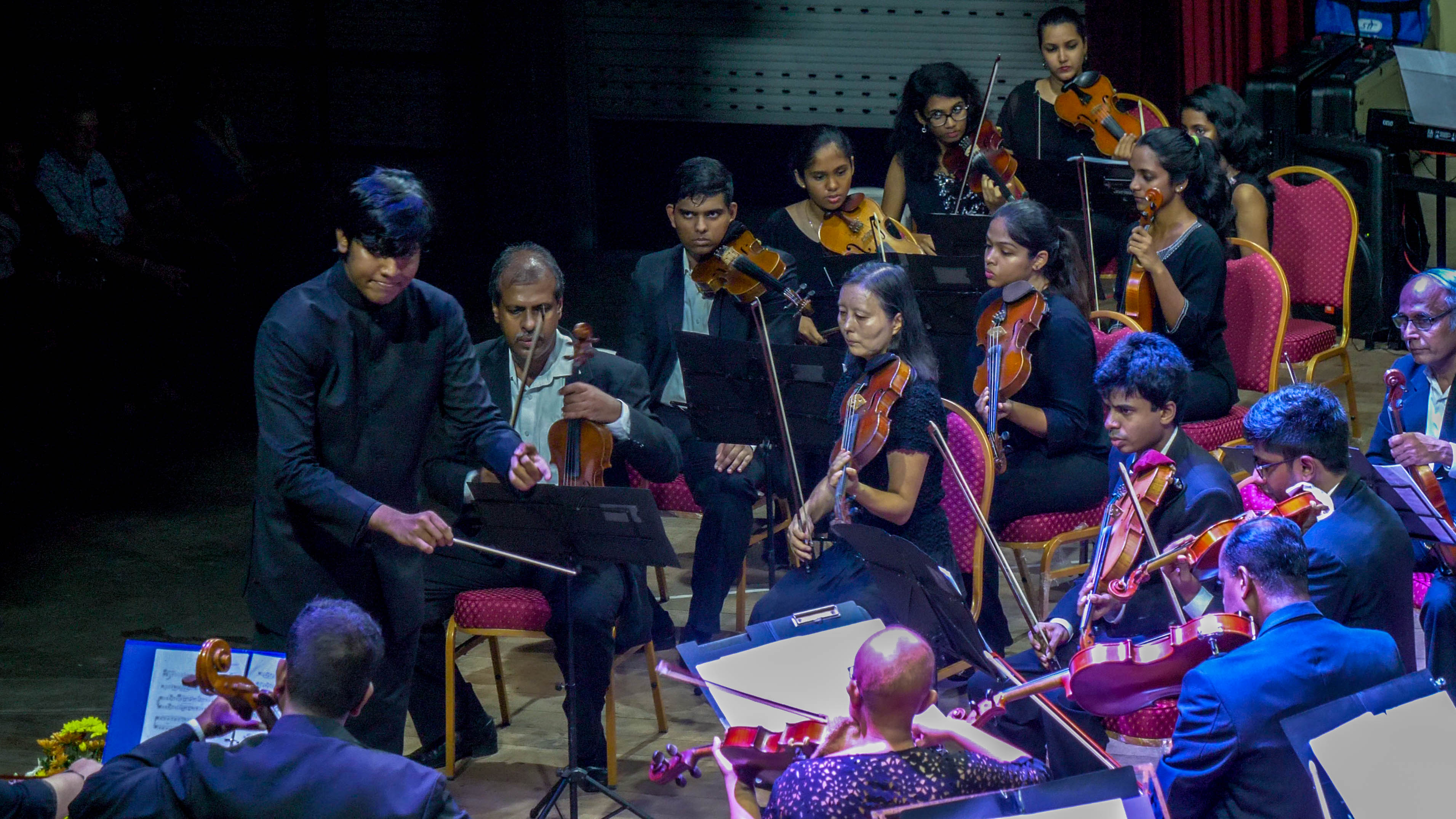
The society’s aims are ‘Performance, Education and Outreach’. Through performances, they hope to to increase opportunities for musicians to perform classical music, regardless of their age or social status, while also raising the standard of the classical music repertoire in Sri Lanka. They also intend to bring in internationally acclaimed conductors and soloists to educate the members of the society. By way of outreach, the society plans to extend membership to financiers and fellow musicians, as well as participate in performances outside Colombo, to give musicians from these places an opportunity to be a part of an orchestra.
The society consists mainly of younger musicians. “Most of them already play in other orchestras,” said Halliday. “The country has three or four orchestras and it’s roughly about the same players that play. So we just had to contact them individually and work things out and they agreed to play, which is a big thing. Because this is not an easy programme at all, and it puts a lot of strain on the [musicians].”
These younger talents include Minuka Jayawardane, a 14-year-old oboist who also plays in the Wind Orchestra, the National Youth Orchestra and the Symphony Orchestra of Sri Lanka; Sandali Tilakaratne, the principal clarinettist, who is from Galle and has experience with the National Youth Orchestra since 2013; and veteran violinist Megumi Sato, who is from Japan and serves as a trainer of the National Youth Orchestra.
In addition to these musicians, the society also has the support of veteran musicians like maestro Ananda Dabare, who is one of Sri Lanka’s most acclaimed violinists. A talented musician who has been playing since the 1980s, he studied at the Moscow and Odessa Conservatories, where he was awarded a Masters degree. He was the leader of the Symphony Orchestra of Sri Lanka for many years, and honoured with the Bunka Cultural Award by the Japan-Sri Lanka Friendship Cultural Fund.
Director Srimal Weerasinghe himself has been the principal oboist of the National Youth Orchestra and also of the Colombo Wind Orchestra, and a performing member of the Symphony Orchestra of Sri Lanka. He was instrumental in reviving the Royal College Western Orchestra in 2015, and it performs regularly under his direction. He was also appointed as a conductor of the National Youth Orchestra of Sri Lanka in 2017.
The Future
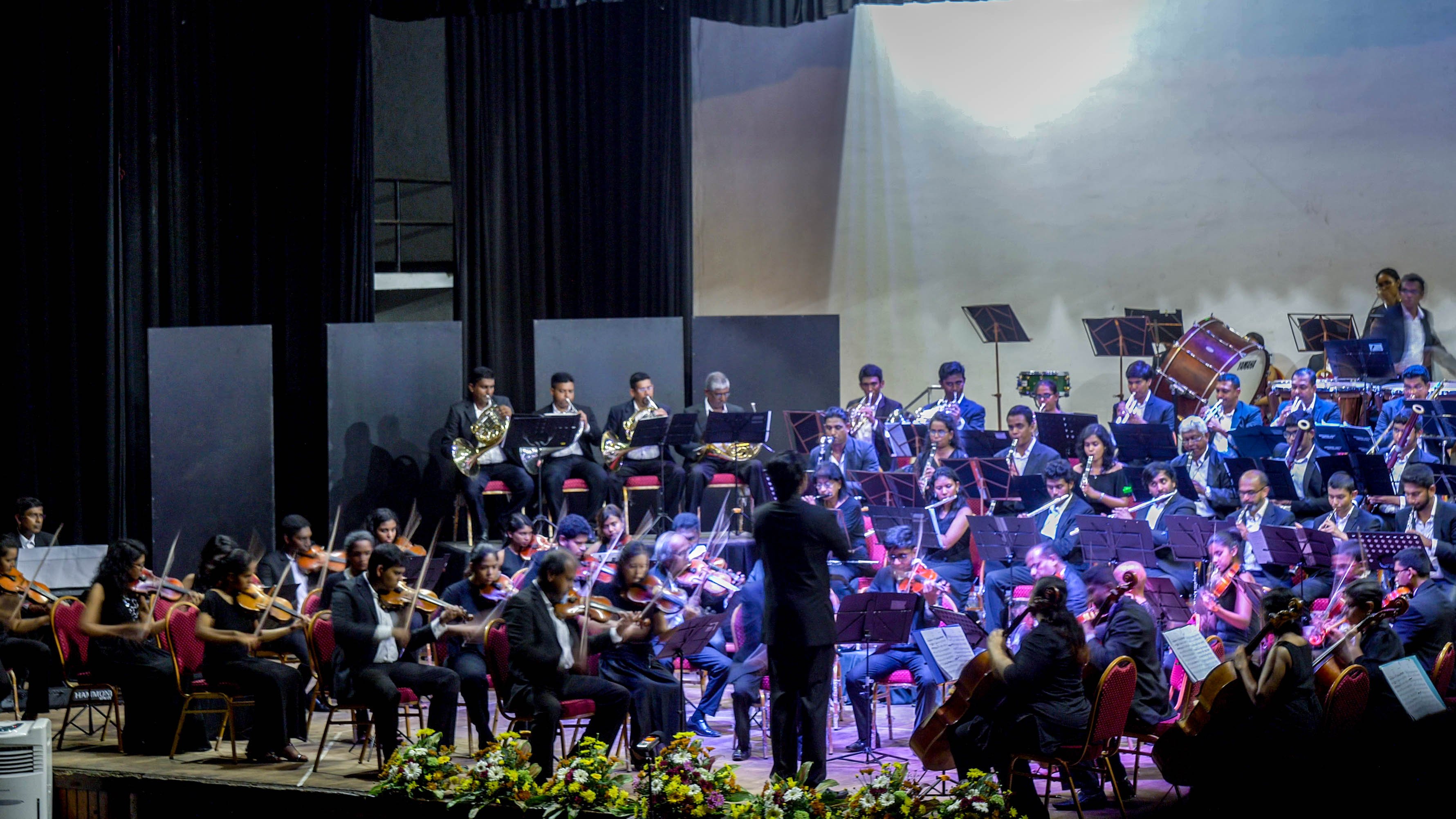
“Right now funding [is our biggest obstacle],” said Halliday. “ We’re just starting up so people don’t know about us. They don’t know about the music because it hasn’t been played before. So things are just slow at the moment.”
However, the society’s inaugural concert ‘Resurrection and Enigma’ was very well received. Srimal Weerasinghe said he was heartened by the feedback to their maiden concert. “It is more than satisfying to see. A lot of the young musicians who got the opportunity to play this concert, I personally saw them improve from day one to the concert. They worked so hard towards this, so that’s very fulfilling.”
Classical music has been on a downward trend in Sri Lanka in the last few years. While it has been kept alive in certain pockets of Colombo, many people, especially from outside the city, look at it with a degree of apprehension. That’s perhaps because it is perceived as an elite interest, and as requiring a certain amount of education in the subject to be enjoyed. But Weerasinghe aspires to change that. An effort like the Gustav Mahler Society is a valuable resource, especially since it provides audiences an alternative to biscuit-kudu bus music.
The Gustav Mahler Society can be contacted through their Facebook page.
Cover Image: The Gustav Mahler Society of Colombo practising for their inaugural concert. Photo courtesy: Noor Jameel/Roar Media



